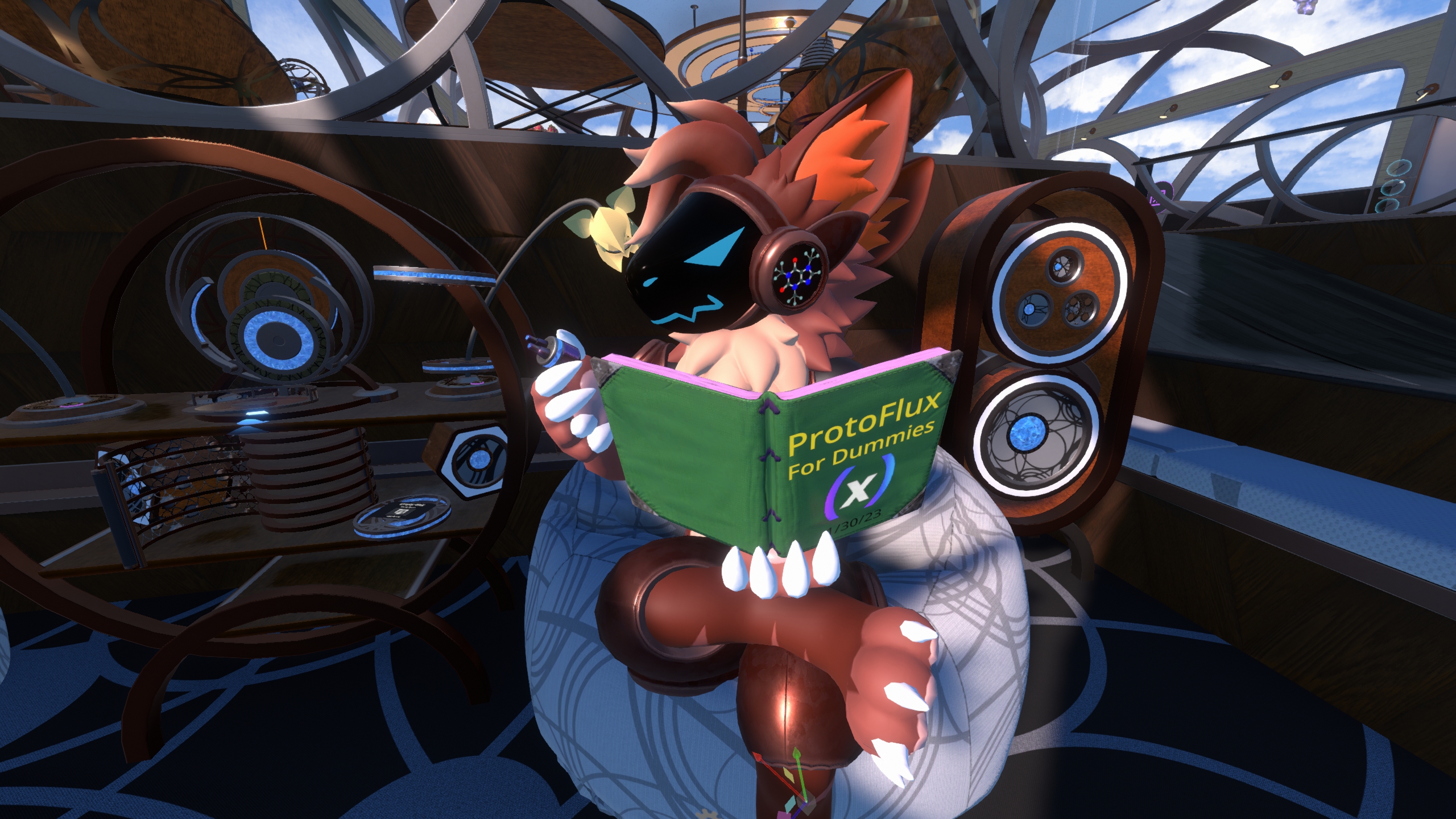I found that even when you can see the image, alt-text often helps significantly with understanding it. e.g. by calling a character or place by name or saying what kind of action is being done.
deleted by creator
The AI ship has already sailed. No need to harm real humans because somebody might train an AI on your data.
Honestly I think that sort of training is largely already over. The datasets already exist (have for over a decade now), and are largely self-training at this point. Any training on new images is going to be done by looking at captions under news images, or through crawling videos with voiceovers. I don’t think this is a going concern anymore.
And, incidentally, that kind of dataset just isn’t very valuable to AI companies. Most of the use they’re going to get is in being able to create accessible image descriptions for visually-disabled people anyway; they don’t really have a lot more value for generative diffusion models beyond the image itself, since the aforementioned image description models are so good.
In short, I really strongly believe that this isn’t a reason to not alt-text your images.
Maybe the AI can alt text it for us.
I recently learned a new way of understanding what “turning the other cheek” is. Rather than a passive acceptance of abuse, it’s like putting a mirror on the abuser and making them look like the villains (which they actually are). The post is very much alike.
The Cheek Slap in Jesus’ Day
In Jesus’ day, hitting a person on the cheek was a forceful insult, but it was not considered a violent assault. Here, Jesus is specifying a strike on the right cheek, which implies a back-handed slap. Striking someone with the back of the hand (3) could demand a doubled fine because it was “the severest public affront to a person’s dignity.” (4)
But Jesus is not suggesting that his followers should stand around and take abuse. First, turning the left cheek was a bold rejection of the insult itself. Second, it challenged the aggressor to repeat the offense, while requiring that they now strike with the palm of their hand, something done not to a lesser but to an equal. In other words, turning the other cheek strongly declares that the opposer holds no power for condescending shame because the victim’s honor is not dependent on human approval—it comes from somewhere else. (5) This kind of action reshapes the relationship, pushing the adversary to either back down or to treat them as an equal.
Source: https://bibleproject.com/articles/what-jesus-meant-turn-other-cheek-matthew-539/
This is The first time i understood what was meant by this part of the bible.
Yeah this makes a lot more sense than the typical interpretation of, “This is fine, hit me some more. I can take it til you tire of being an asshole.”
Atheist here. Always understood it as enduring abuse where unavoidable and not escalating it. It’s not fair but it ends the cycle of abuse assuming you can take it and not be phased too much by it.
What if the aggressor would also back-hand strike the second time, using his left hand now?
In many parts of the world, it’s not uncommon for hands to be the go-to utensils for enjoying a meal. For most of human history, hands have been the primary tool for most things, food consumption included. Today, the tradition is governed by cultural etiquette rules in much of India, Africa, and the Middle East – the birthplaces of human civilization. In majority-Muslim countries, Islamic doctrine dictates that food should be consumed with the right hand, a decree by the Prophet Muhammad that can be found in the Qur’an. This is one of the reasons why in most Middle Eastern countries, the left and right hands have distinct purposes when it comes to activities involving cleanliness and consumption.
Custom dictates that the left hand should be reserved for bodily hygiene purposes, or “unclean” activities, while the right hand is favored for eating, greeting, and other such “clean” activities. It’s best practice to default to the right hand for gift-giving, handing over money, or greeting another person – while the left is primarily for cleaning oneself. For this reason, using the left hand to eat or shake someone’s hand is considered not only unhygienic but potentially insulting as well.
Read More: https://www.foodrepublic.com/1573656/why-left-handed-eating-frowned-upon-middle-east/
Seems like this proposed Jesus theory doesn’t equalize the situation as much as give your opponent a chance to quadruple up on the insult by slapping you with their medieval toilet brush. Not sure I buy that interpretation as nice as it sounds.
Is this a mute/deaf person giving a talk, or a talking/hearing person being incredibly based?
My assumption is the latter, which is awesome.
Given the username, I’d say that is the case: https://terptheatre.org/
"TerpTheatre is both a source of information about theatre interpreting and a tradition of theatre interpreters in the shadowed strategy. "
That’s amazing. I’d love to hear from one of the audience about how they found the experience.
You’d love to hear?
Fuck, I laughed, I’m going to hell… Take your upvote
How fitting the image in the post lacks alt text. 🤦
Just realized I’ve seen the push multiple times to include alt text, but not guidance on how.
Is there an actual etiquette to follow or even a specific format for alt text? Or just a sentence describing the image and call it a day?
The Web Accessibility Initiative has tons of content. For images, you can start from their tips to get started & tutorials that links to.
Here specifically, you can learn how to set alt text in markdown.
Ok, that’s helpful for providing alt text for images inside the body of a post.
Bus what about image posts? When using the web interface I don’t see any opportunity for entering the alt text. 🤔
When using the web interface I don’t see any opportunity for entering the alt text.
Apparently, some instances offer it: you might want to ask your instance administrator to upgrade. If yours doesn’t offer it, the text alternative can be adjacent as stated in the success criterion for non-text content
All non-text content that is presented to the user has a text alternative that serves the equivalent purpose
and the techniques for it identified with prefix G. The
altattribute is merely 1 way to accomplish that.When it’s a screenshot of a webpage, a link to the source makes sense as a text alternative, but it might make more sense to eliminate the need for a text alternative altogether. I see way too many images that could be blockquotes & links, which are often superior to an image: more accessible & more useful to everyone else. That’s often the case of good accessibility: it benefits everyone else.
Maybe this blog post is of use. Good Alt Text, Bad Alt Text — Making Your Content Perceivable.
If you don’t feel like reading the entire post you can skip to “Writing good alt text — Context is key”.
I tend to explain what it is, and what is the important part. Thinking about it from the perspective of what someone might need to know while also respecting their time. I think “Screen shot of Lemmy post feed with nav bar at top, first post says “blah”, second post says “blah blah”, third post says…”, I think that’s too much unnecessary detail. So I’d do something like “Screen shot of Lemmy post feed, showing the third post called “Blah blah” has a green highlight over the first word” or whatever the message is I’m trying to get across with the screenshot.
I don’t know if there is etiquette or a specific format but I would write as much as is needed to convey the reason you’re including the image (whether that is a sentence or 100 words), striking a balance between making sure someone who is relying on the alt text can understand everything they need to know while also respecting their time.
Are there any blind people on Lemmy, screenreading this? I get why alt-text is useful functionally on things like application interfaces, and instructive or educational text, but do you actually enjoy hearing a screen reader say "A meme of four oanels. First panel. An image of a young man in a field. He is Anakin Skywalker as played by that guy who played Anakin Skywalker in the Star Wars prequels. He says ‘bla bla bla’. Next frame. An image of a young woman. She is Padme as played by Natalie Portman. She is smiling. She says “bla bla bla, right?”
alt text is a part of the post quality like any other
the question is do you need at least one blind person to justify alt text or do you want the alt text to make it possible for blind people or people with impaired vision to enjoy if they ever stumble upon it?
This! I often hear certain restaurants don’t have ramps because disabled people don’t eat there. And we don’t because there’s no ramp.
If an uncaptioned tree falls in the woods without any blind people around…
Its a genuine question: how much enjoyment does someone with a visual impairment get from a meme that’s purely a visual gag? You could go through a lot of work to make a cliff face wheelchair accessible but it will never be the same experience as rock climbing
your analogy makes no sense, and neither does your argument.
first of all the purpose of making places wheelchair accessible is to make it possible for people in wheelchairs to go there, not to give them “the experience” whatever the fuck that is supposed to be.
like, what do you even know what the wheelchair experience is like, and what makes you think what people in wheelchairs want is the experience of rock climbers, rather than the ability to experience something themselves? have you ever seen an interpreter sign a rap song? what do you think that’s for? to stimulate hearing?
second of all, memes are rarely “purely visual” gags. I don’t even know what makes you even think that. because they’re in an image format? you do realize a woman staring at her boyfriend who’s checking out another woman is in no way a visual gag, right? it’s not about how they look, it’s what they’re doing.
or, to argue on a more basic level, if it’s purely visual why does it have fucking words?
Blindness is a spectrum! So for example, someone could maybe make out the stick figure shape in a comic but not the speech bubbles. Most blind people can still see things but it greatly helps to have things read out as an aid to quite literally see the whole picture :)
And now I wanna try rock climbing as a wheelchair user just because, lol
Very fair point 👉
I personally know many blind people on the fediverse, yes.
I do alt text on my image posts, especially OC content as I find it’s a curb cutting effect. https://en.m.wikipedia.org/wiki/Curb_cut_effect
I’m not the only person in a rural area who has internet access, and sometimes the alt text is enough to convey the joke/image than the image itself.
Plus I find it a fun test of my vocabulary to use the words I need to explain the joke/image. Sometimes I don’t know the right words and I learn a new one.
When the instance hosting the image dies the alt text stays so I can still read the old posts even if image is long gone into enthropy.
As a video engineer on events, I always love having to accomodate live captioning and signers.
It means more layers on the screen (IE picture in picture), more chance to make things look good, and it means the production company / client / organiser has actually thought about their event.I always enjoy gigs with wheelchair accessible stages, captioning, hearing loops, and signers are good gigs.
And to alt-text an embedded image in markdown:
Now this I did not know. Every day’s a school day.
I brought mom’s brownies for recess.
I didn’t know you could do that! I’ll try it, let me know if it works.

FYI alt text only applies when the image fails to load. You can get hover text by adding quoted text after the url.
Preview

Alt text is read by screen readers even if the image loads.
Neat. For me on mobile, the hover text takes precedence but they both work.
Voyager doesn’t seem to use the hover text at all. I think it should though, might make a post about it in their community.
Markdown features are extremely fragmented. Hover text might be a non-standard feature that not all markdown renderers can handle (or even a standard feature that’s omitted in some renderers).
Oh shit that’s actually really useful, thank you!
I usually either write a proper alt-text if it’s a non-joke image, or an xkcd style extra joke if it’s meant to be a meme.
Well, I do on Mastodon. I know exactly where the button for that is on that platform. Gimme a sec to check where it is on Lemmy.
In jerboa on android there’s a dedicated alt-text field above the “body” field
I’d probably have just left - wasting my time isn’t the answer for a shitty venue.















